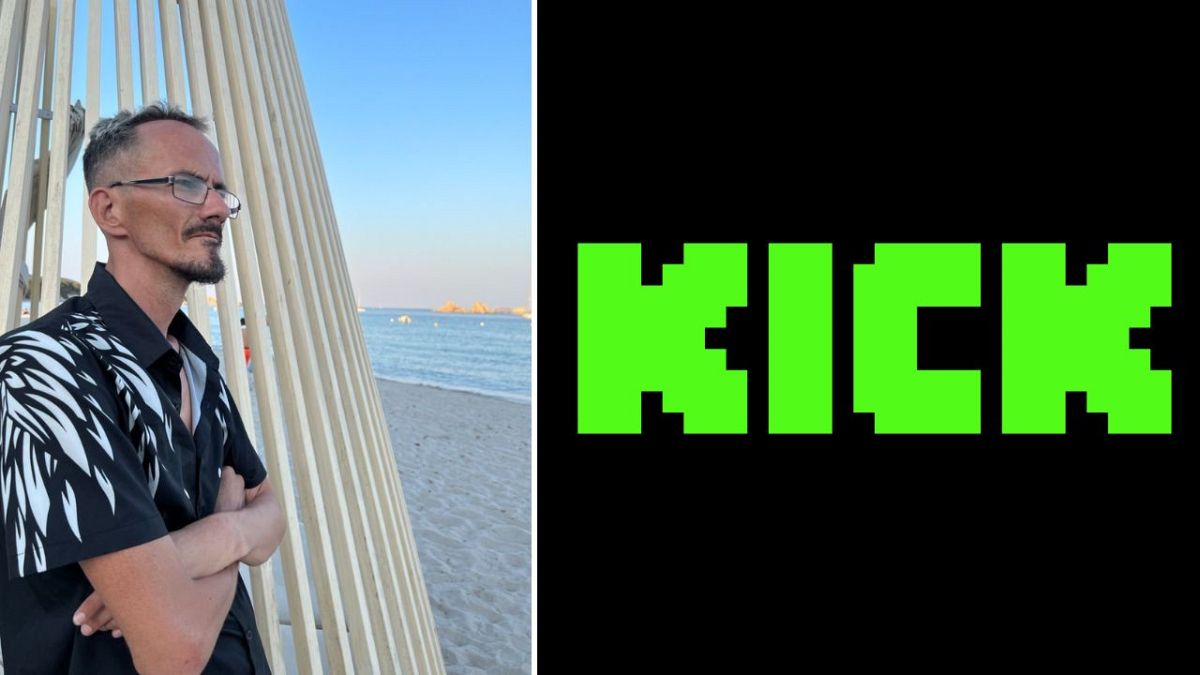Content warning: This article includes mentions of violence, suicide and extreme acts that some readers might find disturbing.
It’s a tragedy that has exposed a lesser-known side of internet culture.
French streamer Raphaël Graven, known online as Jean Pormanove, died on Monday in southern France during a live broadcast on the Kick streaming platform.
Graven, 46, was one of France’s first ever streamers and had about half a million followers on his various channels.
Over the years, he had become known for engaging in degrading acts on screen, such as strangulation and ingestion of toxic chemicals, sometimes at the request and with the financial support of live viewers.
Graven appeared alongside three other people – his regular streaming partners – throughout the 12-day long broadcast that led up to his death.
Footage shared on social media showed two of these men, known as Naruto and Safine, physically abusing and berating him. France’s digital affairs and artificial intelligence minister Clara Chappaz described the incident as “absolute horror”.
French police opened an investigation into Graven’s death, and an autopsy should be performed today.
Rapper Drake and US streamer Adin Ross, who are both financially linked to Kick’s parent company, have offered to pay for Graven’s funeral.
This episode of horrific violence sheds light on a subgenre of live online content that is driven by streamers who engage in humiliating and sometimes dangerous behaviour.
The disturbing horrors of trash streaming
Graven’s case is reminiscent of trash streaming, a phenomenon that originated in the 2010s and became popular in Russia and Poland.
Trash streamers commit degrading, violent and sometimes fatal acts against themselves or others.
In 2021, a Russian streamer was sentenced to six years in prison for the death of his 28-year-old pregnant girlfriend during a December 2020 live stream. The man beat his partner, causing traumatic brain injury, and locked her out of their home while she was wearing only her underwear, the Moscow Times reported.
Paramedics pronounced the young woman dead while cameras were still rolling. Russia later adopted a federal law banning trash streams.
The audience is a key participant in trash streaming.
“Viewers are often curious about what extremes trash streamers are capable of going to,” said researchers Barbara Cyrek and Malwina Popiołek in a 2022 article. “The greater the availability of tools allowing to influence the shape of the broadcast, the potentially greater the chances for more extreme content.”
On platforms like Kick or even YouTube, viewers can donate money to incentivise content creators to go further.
The first episode of the seventh Black Mirror series, which aired in April, takes inspiration from this phenomenon. The main character, played by Chris O’Dowd, joins a fictional trash streaming site named “Dum Dummies”, where he performs humiliating tasks in exchange for money to support his ill wife.
The episode ends as he is about to commit suicide while on stream.
In Raphaël Graven’s case, the donation counter at the end of his fatal 298 hours-long live suggested him and his partners had raised more than €36,000.
Lack of regulation
Content creators who engage in practices related to trash streaming have found safe havens in loosely regulated platforms like Kick.
The Australian live streaming service was created in 2022 by the founders of gambling company Stake.
Kick’s community guidelines officially prohibit “content that depicts or incites abhorrent violence including significant harm, suffering or death,” as well as “displays of serious and significant self-harm.” However, the platform grew its brand and user base thanks to more lenient moderation policies compared to rivals like Twitch.
In December, French media Mediapart had already revealed that Raphaël Graven was the victim of a yearslong “business of humiliation.”
The story prompted prosecutors to open an investigation, with Graven’s partners Naruto and Safine being briefly taken into custody.
Kick temporarily suspended his channel before it was allowed to broadcast again. Mediapart’s revelations prompted no political or legislative follow-up at the time.
The platform has banned all streamers involved in the video of Graven’s death and is reviewing its French content, it said on Wednesday. However, Kick did not say whether it would update its community guidelines, which currently state that “live streaming, by its nature, is unpredictable” and that “it’s impossible to foresee every outcome.”

